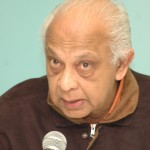A Brief Colonial History Of Ceylon(SriLanka)
Sri Lanka: One Island Two Nations
A Brief Colonial History Of Ceylon(SriLanka)
Sri Lanka: One Island Two Nations
(Full Story)
Search This Blog
Back to 500BC.
==========================
Thiranjala Weerasinghe sj.- One Island Two Nations
?????????????????????????????????????????????????Saturday, April 6, 2019
An Open Letter To The High Commissioner For Human Rights – Part III

Sri Lankan (Sinhalese) governments – unable to govern
 A
feature of every government since Independence in 1948 is that they
have had no idea of proper governance. This is a serious problem
especially where there are two separate nations in one country – in Sri
Lanka a Sinhalese Nation and a Tamil Nation.
A
feature of every government since Independence in 1948 is that they
have had no idea of proper governance. This is a serious problem
especially where there are two separate nations in one country – in Sri
Lanka a Sinhalese Nation and a Tamil Nation.
“Sinhalisation”
There has been a mass relocation of Sinhalese from the South to the
Tamil areas by the Government. What is not widely known is that the
Sinhalese military and police who have quit their jobs are being
relocated in the North with their families.
The result is a massive increase in the number of Sinhalese in the North
and East. If this continues, the North and East will be dominated by
Sinhalese. The electoral consequences are obvious. This will not be
reversible as has happened in Amparai in the East, which was a Tamil
area that has been ‘Sinhalised’.
The long-term objective of accelerated Sinhalisation of the Tamil area
is to destroy the Tamil homeland and establish a monoethnic identity
throughout the island – a Sinhala-Buddhist nation.
“Buddhistisation”
Buddhist temples and structures are proliferating in an area where there
are no Buddhist civilians. The only Buddhists are members of the Armed
Forces and Police.
What often happens is that a ‘Bo-tree” (Ficus Religiosa) is planted in
an area which is then declared a Buddhist sacred site. A Buddhist temple
is then erected.
The British Tamils Forum (BTF) has published an excellent book, “Proliferating Buddhist Structures in Tamil homeland – Sowing the seeds of Disharmony”.
Poverty and unemployment in the North
Poverty and unemployment are higher in the Northern Province than
anywhere else in Sri Lanka. At the Northern Provincial Council’s 2nd budget
reading on 12/12/17, the then Chief Minister of the Northern Council,
Justice Wigneswaran, said that out of all 25 districts in Sri Lanka,
Kilinochchi was the poorest. Mullaitivu which was previously the poorest
is now number 2 on the list of poverty by district. Jaffna is the 5th poorest district.
The level of unemployment is also highest in the Northern Province than in any other province.
Sexual violence in the North and East
Sexual violence has increased across the Northern Province. Women widows
in their 20s are sexually assaulted at work. Women teachers are
sexually assaulted in schools. Gangs commit sexual violence for money.
Unwanted pregnancies and teenage pregnancies are an issue. Many men come
to Jaffna from other places, have relationships with women, marry them
and then leave them. Society shuns these women seeing them as indecent.
Sex is a taboo subject in Tamil culture. As such, sex education is not
taught or taught poorly. In what is still a male dominated society, such
issues are difficult to deal with.
My book Sri Lanka: Sexual violence of Tamils by the Armed Forces has nearly doubled in size in two years since it was first published in 2015. It is now (March 2019) 264 pages.
Violation of human rights
There continues to be involuntary ‘disappearances’, abduction, arrest
without warrant, illegal detention at unknown sites and a failure to
release those who are being held without charge or trial. Nothing has
changed in the North and East with the replacement of the dreadful
Rajapaksa regime by Sirisena. All of this has been well documented in
several publications, including publications by Amnesty International, a
Nobel Prize winner.
The 2017/18 Amnesty International Annual report spells it out.
Concerns have been raised about arbitrary arrests and detention,
torture and other ill-treatment, enforced ‘disappearances’, impunity
that has persisted for crimes under international law, harassment and
surveillance of Tamils in the North and East by security forces, the
finding by UN Committee on the Elimination of Racial Discrimination that
the PTA (Prevention of Terrorism Act) was disproportionately used
against Tamils and was discriminatory in effect and that violence,
including sexual violence, persisted against women and girls.

